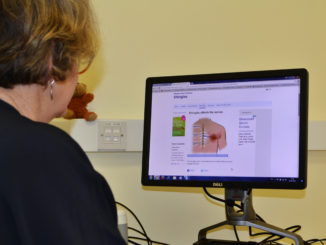
Eoghan Cormican
New pre-clinical research suggests that a new prototype drug can kill Chronic Lymphocytic Leukaemia (CLL) cells circulating in the blood.
The research, carried out by scientists at National University of Ireland Galway (NUIG) has produced encouraging results and saw blood samples from patients with CLL introduced to the prototype drug.
The research, which is published in this month’s Molecular Cancer Therapeutics, a journal of the American Association for Cancer Research, also found that the molecule has the ability to target dividing leukaemia cells within lymph nodes.
With current methods of treatment, these cells can operate as a reservoir of resistant cells and can lead to relapse.
The research of the molecule ‘PHA-767491’ with regard to treating chronic lymphocytic leukaemia has been ongoing for the last two and a half years, headed by Professors Michael O’Dwyer and Afshin Samali.
The molecule is the parent compound of a drug now being examined in a phase one clinical trial run by Professor Michael O’Dwyer at the HRB Clinical Research Facility at NUIG. The success of the laboratory research was a vital aspect in developing the clinical trial.
Frank Giles, Professor of Cancer Therapeutics and Director of the HRB Clinical Research Facility at NUIG, said, “Enormous progress in anti-cancer therapy is being made as pre-clinical identification of an optimal target, the development of small molecule that modulate the target, and the conduct of early phase human studies, are becoming a seamless process. The conduct of these early studies is a top priority for our NUI Galway CRF and demonstrates Ireland’s increasing strength in this critical biomedical sector.”




Leave a Reply